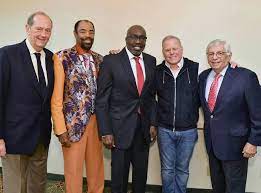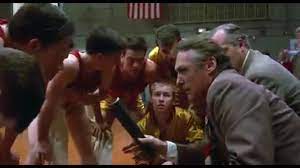It’s a topic I have been thinking about for quite a while, and now as we head towards the colder weather and hopefully further out of The Pandemic, the idea seems to be coming up more and more frequently.
Transitioning to The Second Act.
I remember the late David Stern talking about his second act, as an investor/mentor/entrepreneur when he would speak to groups, and he mentioned how much he was enjoying the new opportunities that were abounding in his time after he retired from being Commissioner of the NBA.
I have a friend who became a baker after she left a career deep inside communications businesses, another who found a passion running a B and B after years in the financial world, another who has run a successful summer camp after decades on Wall Street.
All have their challenges but all, as well as many others, found a way to have financial means, manage their time, and out joy and purpose back into their lives after years of status quo, no matter how financially success they were.
The default to the second act usually is ore prominent around athletes, and this Axios piece this week on Peyton Manning’s second act was a great thought starter for how he transitioned, and athletes usually transition at a much younger age than most of us to “what’s next.”
For me, not 14 years into a second, a third, a fourth act, it actually happened much closer to the age of a retiring athlete (45) than most people who have been hit by downsizing, large salary cuts, business failures or just austerity in recent years. However my second act, working for myself, didn’t come without angst, fear of the unknown, and a removal from a comfort zone at its core.
So for those who are now looking for a second act, or who are being forced into a second act of a new chapter, some thoughts.
Sometimes the path chooses you. You have to be open minded enough to see opportunity, or see opportunity presenting itself and be willing to be curious and try something a little different. We may want to always stay to the safe route, when in reality there might be an opportunity that will be a little off center using the skills you have that can open a whole new world for you.
Take stock of the skills you have. I hear this so often…I’m a good salesperson, or I know how to work in finance…all important, but what other skills do you have that can help jumpstart the second act? Can you write well? If you are parent how do you help manage time? Are you a finance whiz? Often times we are so caught up with the day to day we fail to see the skills we have amassed that translate into needed opportunities. We are all pretty good at multitasking and being utility players from time to time…where do those positions now fit on a new field?
Passions are nice, but they also have to pay the bills. Often times we hear people say “follow you passions” but those passions may not meet a career goal that gets you through the next stage. More than passion, you have to find balance and practicality. Understand what you want to do, use, crate or enhance skills, and see if the dollars work. Often times the passion tied to the finance can work out…not perfectly, but melding the interest with creative balance can bring an interesting solution.
Don’t Get Caught Watching The Paint Dry. I often realize people who I have not heard from for years are getting pushed out or getting ready to move out when I get emails from a Gmail account not a work account and they say they want to talk or catch up. Many may see the handwriting coming or have been warned, but many still are too caught up in the day to day and get caught without the next chapter starting to form. In today’s fluid workplace, especially when you reach a certain age or pay grade, you are susceptible, and unless you own the business, you can always be replaced for cheaper, younger, different. Now it’s not good to be going through life being defensive or paranoid, but you have to be realistic, hence listening, being a curious adaptive learner and sharpening the tools for the job toolbox are must haves on the to do list, no matter how secure you feel.
Lastly. Joy. The second act should have a quality element of joy vs drudgery. It is a great chance to rethink, retool, reimaging, reinvent and refine. Take stock in what brings you pleasure at work, what makes it NOT work, what is important in the culture of where you work and maybe most importantly, who you work with and what you do. I see too many people jump into a second act that is boring, costly, or lifeless because they just needed to get something. Instead, the second act should be the culmination of all the experience and wisdom and skills you have gathered, with a bit of a reframe. And a piece of that reframe is pleasure in place. You have to enjoy what you do after all the time you put in, and joy and return on your time don’t have to be mutually exclusive. They should meld together.
So thanks Eli for telling us your second act. It’s something I’m going to keep looking for far and wide…and maybe we can compile a vast list of those who have hit the restart. Made the pivot, and are enjoying a new chapter. Suggestions welcomed.



